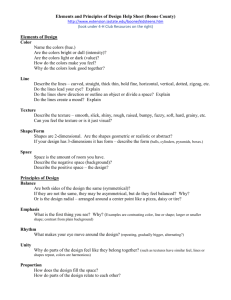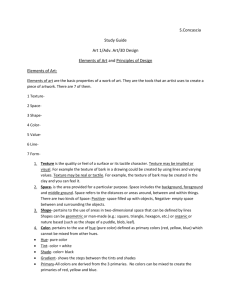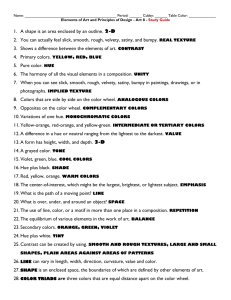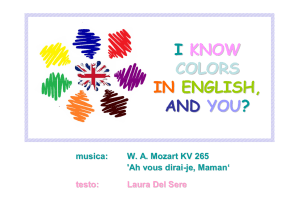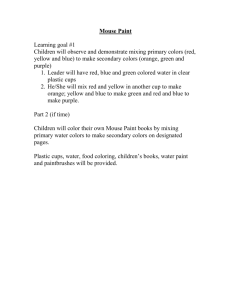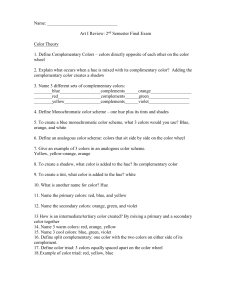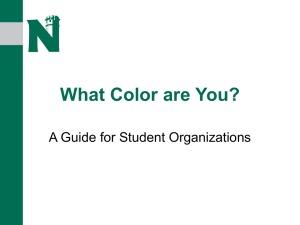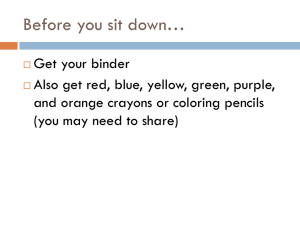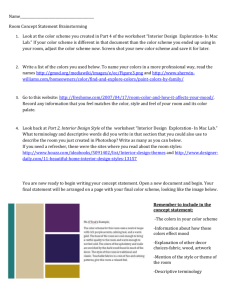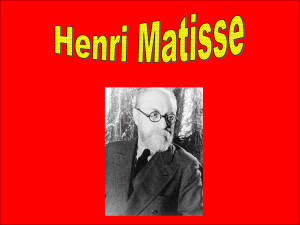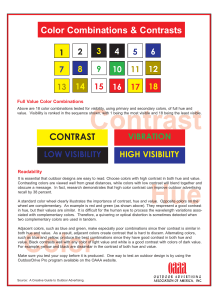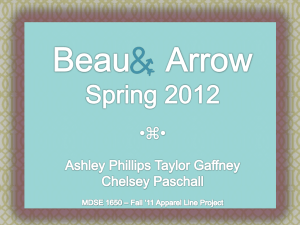8th Grade Vocabulary
advertisement
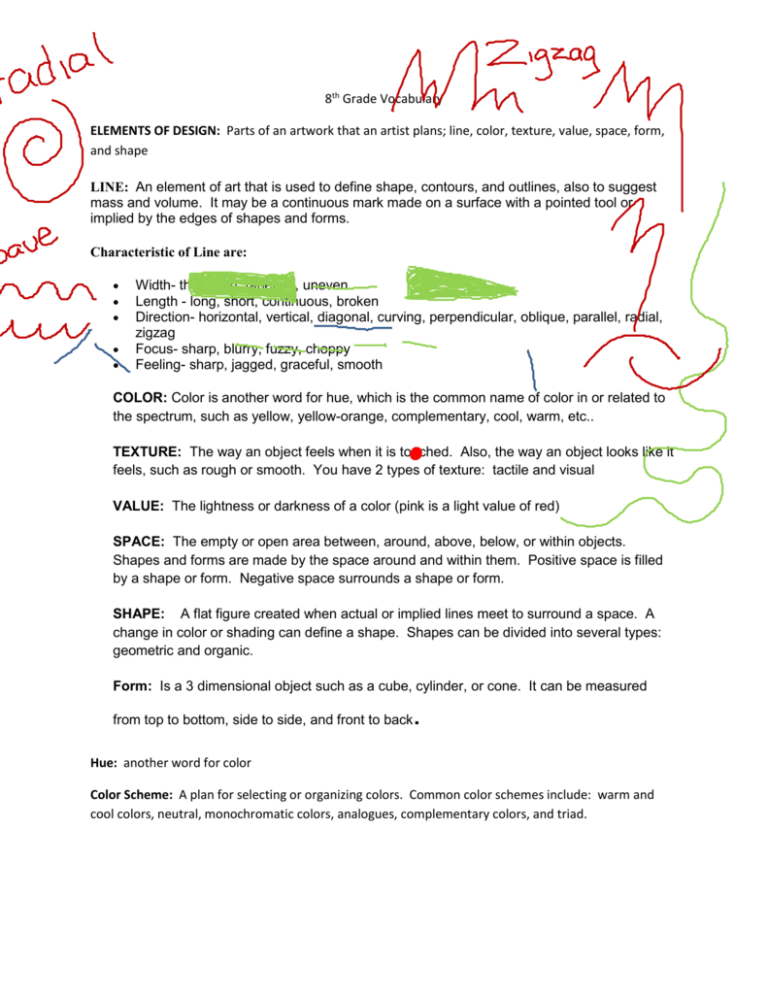
8th Grade Vocabulary ELEMENTS OF DESIGN: Parts of an artwork that an artist plans; line, color, texture, value, space, form, and shape LINE: An element of art that is used to define shape, contours, and outlines, also to suggest mass and volume. It may be a continuous mark made on a surface with a pointed tool or implied by the edges of shapes and forms. Characteristic of Line are: Width- thick, thin, tapering, uneven Length - long, short, continuous, broken Direction- horizontal, vertical, diagonal, curving, perpendicular, oblique, parallel, radial, zigzag Focus- sharp, blurry, fuzzy, choppy Feeling- sharp, jagged, graceful, smooth COLOR: Color is another word for hue, which is the common name of color in or related to the spectrum, such as yellow, yellow-orange, complementary, cool, warm, etc.. TEXTURE: The way an object feels when it is touched. Also, the way an object looks like it feels, such as rough or smooth. You have 2 types of texture: tactile and visual VALUE: The lightness or darkness of a color (pink is a light value of red) SPACE: The empty or open area between, around, above, below, or within objects. Shapes and forms are made by the space around and within them. Positive space is filled by a shape or form. Negative space surrounds a shape or form. SHAPE: A flat figure created when actual or implied lines meet to surround a space. A change in color or shading can define a shape. Shapes can be divided into several types: geometric and organic. Form: Is a 3 dimensional object such as a cube, cylinder, or cone. It can be measured from top to bottom, side to side, and front to back . Hue: another word for color Color Scheme: A plan for selecting or organizing colors. Common color schemes include: warm and cool colors, neutral, monochromatic colors, analogues, complementary colors, and triad. Primary Colors: Red, blue, yellow Secondary colors: green, purple, and orange: Blue + Yellow = Green Yellow + Red = Orange Blue + red= Purple Warm: reds, yellows, and oranges Cool: blues, purples, and greens Analogues Color: colors that are closely related because they have one hue in common. Example: Blue; blue-violet, violet. They all appear next to each other on the color wheel. Intermediate colors: a color made by mixing a secondary color with a primary color. Monochromatic: made of only a single color and its tints and shades. Neutral color: a color not associated with a hue, such as black, white, gray, or brown. Triad: three colors spaced equally apart on the color wheel, such as orange, green, and violet. Contrasting colors: colors that are very different from each other in hue, lightness or brigh
